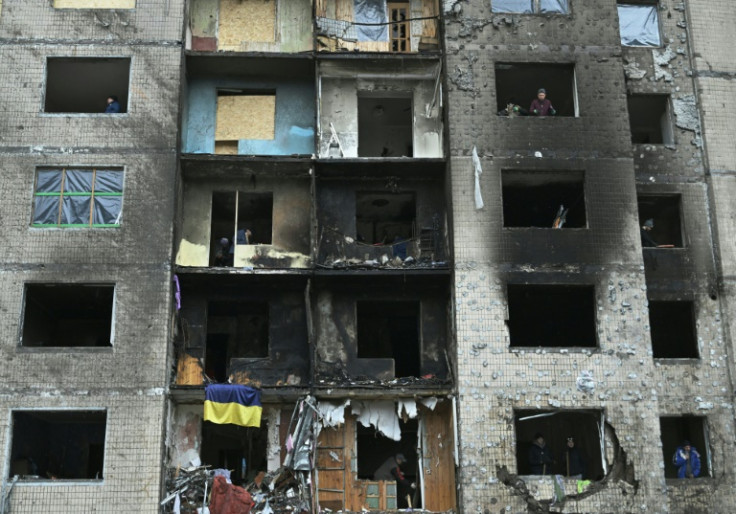UN Seeks $4.2 Billion For Ukraine Aid In 2024

The United Nations said on Monday it needs $4.2 billion this year to provide humanitarian aid in Ukraine and help millions who have fled, urging people not to forget the war-torn country's plight as the Gaza war dominates attention.
Russia's war in Ukraine is set to enter its third year in February and the UN said it was vital to maintain support to millions whose lives have been overturned by the conflict.
The UN hopes to reach 8.5 million people within Ukraine and 2.3 million refugees and their host communities in eastern Europe.
"Remember Ukraine?" UN aid chief Martin Griffiths asked as he launched the plan in Geneva.
"Please do not forget Ukraine while there are many other places in the world which grab our attention."
"As we go into 2024, the competition for funding is going to be more," he acknowledged, citing the "considerable" costs of the Gaza war.
Ukrainians "need your help, they need your funding", Griffiths said, stressing: "Humanitarian aid remains the lifeline, without which they will perish."
The full-scale Russian invasion of Ukraine in February 2022 was the biggest invasion of a European country since World War II and triggered the largest refugee crisis the continent has faced since the 1939-1945 conflict.
Russia has intensified its aerial assaults on Ukraine in recent weeks. Bolstering its arsenal, it has geared up for a long war and reoriented its economy.
"The recent month has been a month of great savagery for the people of Ukraine... It's a war that is going as fast and hard and harshly as ever," Griffiths said.
"This plan is based on the pessimistic assumption that the war will continue throughout 2024."
The UN says 14.6 million people will need humanitarian assistance in Ukraine this year -- 40 percent of the population -- of which it will try to reach the 8.5 million most in need.
Griffiths said the highest priority was the 3.3 million people -- "a shockingly high number" -- living on the front line in eastern and southern Ukraine.
"Hundreds of thousands of children live in communities on the front lines of the war, terrified, traumatised and deprived of their basic needs," he said.
Griffiths and Filippo Grandi, the UN High Commissioner for Refugees, launched the joint plan at the UN's Palais des Nations in Geneva.
Some 6.3 million people have fled Ukraine and remain refugees, mostly across Europe.
The regional refugee response plan is seeking $1.1 billion and aims to reach 2.3 million refugees and host communities in 10 countries.
"Millions of refugees from Ukraine still need urgent support," Grandi insisted.
Only half of school-age Ukrainian refugee children are enrolled in schools in host countries, he said, while a quarter of refugees in need struggle to access health care.
Only 40 to 60 percent are employed, the UN said -- often below their qualifications -- while many remain vulnerable with no means to support themselves.
Unlike other crises, "these people are not refugees from their government", Grandi said.
"They are fleeing from the occupation, the invasion and the Russian bombing."
The high commissioner said the chief focus was on Moldova, which is outside the European Union and its overarching EU programme to help Ukrainian refugees.
He said he would visit Moldova later this week and then spend nearly a week in neighbouring Ukraine.
Besides the refugees in other countries, Grandi noted that around four million Ukrainians have fled their homes but remain within the country's borders.
Ukraine "remains the largest displacement crisis in the world", he said.
The 2023 humanitarian response plan for within Ukraine sought $3.9 billion and to date has been 67-percent funded. This year it is asking for $3.1 billion.
The UN said that despite access challenges -- particularly to areas occupied by Russian forces -- aid workers reached 10.5 million people in Ukraine in 2023.
In its global humanitarian appeals this year, the UN has tried to rein in its objectives, seeking to prioritise those most in need with smaller appeals -- in the hope that they will be more reliably funded.
© Copyright AFP 2024. All rights reserved.





















